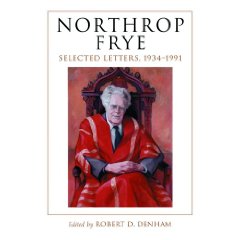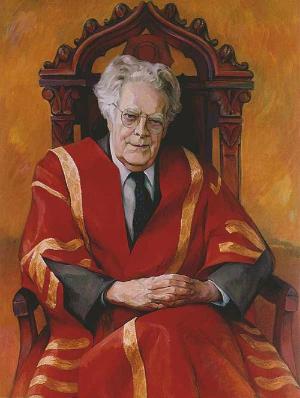
I have recently been reading Northrop Frye: Selected Letters, 1934-1991 (ed. Robert Denham, published by McFarland). They give one a vivid insight into the history of literary studies through the twentieth century, and of Frye’s developing role within that history. One thing that stood out for me in the selection of letters from the earlier years was the extent to which Frye’s career was bound up with his identification with Victoria College, and with various other Canadian institutions. This is of course something that anyone at all familiar with Frye is aware of; what is so compelling about these letters is the glimpses they give us of the thoughts and feelings of Northrop Frye, in his late thirties, a promising young scholar who has just published his first book and finds his promise transformed into achievement and recognition.
People often comment today about how star scholars are lured from campus to campus with offers of increased pay and reduced teaching duty, but on the evidence of the Frye letters, things were not so different in the 1940s. In February of 1948, Frye writes to Walter Brown, the president of Victoria College, asking for promotion to the rank of Professor. He notes “the College has treated me very well, and my refusal of the Wisconsin offer is pretty tangible evidence that I realize that fact. I do have to consider the question of how far I can afford to keep on refusing offers for promotion and greatly increased salary. The Wisconsin one is the fourth full professorship I have been offered in the past eighteen months: I have no reason to suppose that such offers will cease coming, and I should be greatly fortified in my desire to refuse them by possessing the rank which they offer.” He concludes the letter by telling Brown that “my conviction of your personal concern for my welfare has always been an essential factor in my desire to remain at Victoria College.”
A few years later (November, 1951), Frye writes to Robert Heilman, chair of the department of English at the University of Washington, who had been exploring Frye’s willingness to consider a career move, “I look around at my desk and see it piled high with Royal Commission reports on Canadian culture, Canadian magazines and books, letters about jobs in Canada, Royal Society and Canadian Humanities Research bulletins, and I realize how deeply intertwined I am with this community. I think I should be unlikely to move except to a job that could absorb my teaching and writing interests completely – that’s the nearest I can get to indicating a state of mind at present.”
Those of us who are academics can no doubt draw many conclusions from this exemplary narrative.

